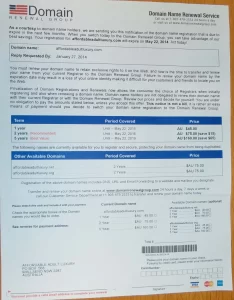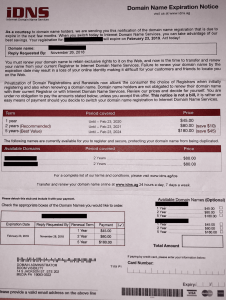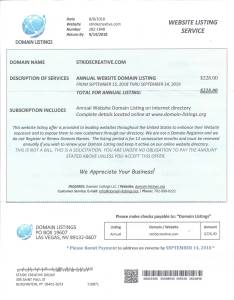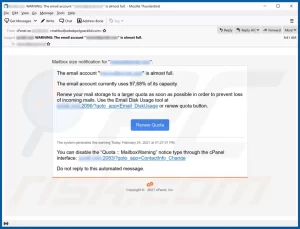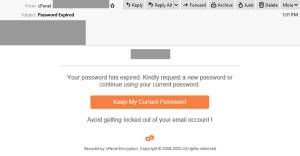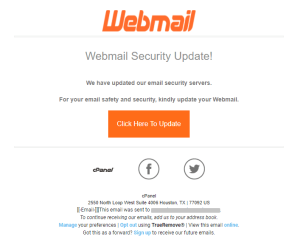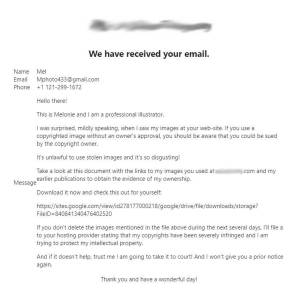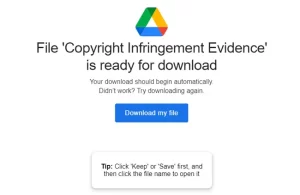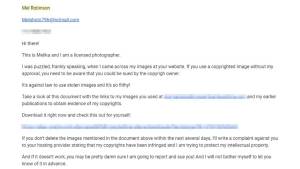There are a number of common scams that you may encounter around your website, email, or domain name. Scammers take advantage of small business owners who might not know all the ins-and-outs about how their website works.
If you receive a suspicious email about your website or email account, DO NOT CLICK THE LINKS in the email. You can forward the message to our team so we can check to see if it’s legitimate.
Here are some of the most common scams we've encountered:
Fake Domain Invoice
Many domain registrations are public information, giving scammers an in to send fake invoices to your email or mailing address.
If you receive an “invoice” for your domain name, especially in the mail, it may be a scam.
Be sure to read the fine print to see if it says “Not a bill” or similar language. Real domain renewals usually come via email from the company that your domain name is registered with (i.e. GoDaddy, Network Solutions, etc)
AcuPerfect Website Clients: Contact our team if you’re not sure if a domain invoice is real or not, we’ll be happy to look up where your domain is registered and make sure you’re not being scammed.
Email Phishing Scams
One common way scammers get your email password is to send you a fake email about your account being full or needing validation so you’re not “locked out”.
They will then provide a link to a fake email login page that may look identical to your real email login. When you enter your password on the fake page, you have given your password to the scammers to use to log into your account.
If your email is hosted by AcuPerfect Websites, you will never have to “validate” your email account or “renew your email quota”. If you receive any email that requests your email password, check with our team so we can verify if the email is legitimate or not.
Fake Image Copyright Claim
Another scam we’ve seen is fake image copyright claims that come through your website’s public contact form.
The message claims to be from a “licensed illustrator” or “professional photographer” and goes on to say you’ve stolen their photos on your website.
They provide a link to a vague download, which ends up being a malicious file or virus.
AcuPerfect Website Clients: Real copyright claims will never come through your website contact form. If you receive a copyright claim that you’re not sure about, contact our team and we’ll be happy to look into it for you.


